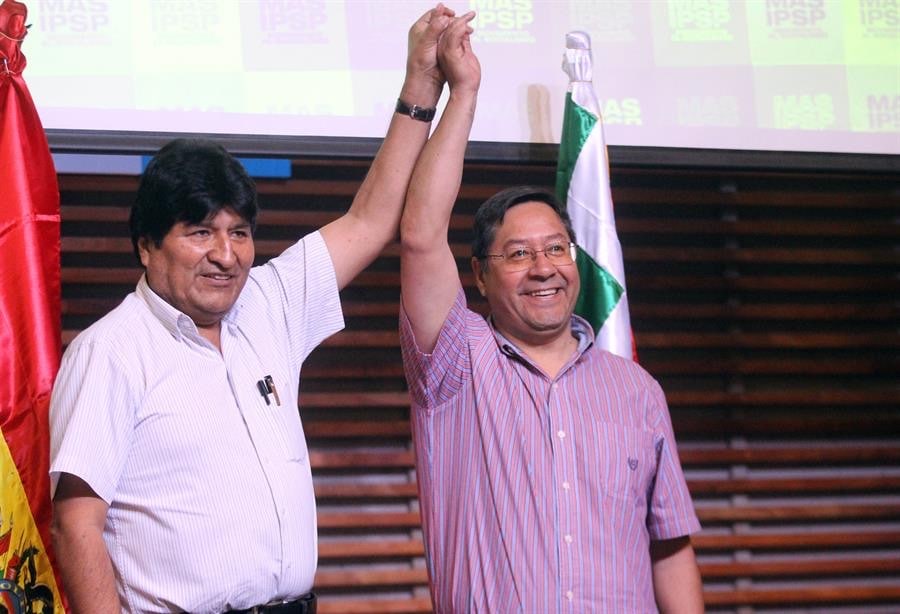The last military dictatorship ended in October 1982. In these four decades, how has the democratic life of the South American country developed?
Analysts consulted by Sputnik evaluated a road with obstacles, including the overthrow of Evo Morales in 2019.
In October 1982, General Guido Vildoso Calderón handed over the Presidency of the Republic to Hernando Siles Zuazo to end the habit of military coups that took place during the last century.

But in 40 years, Bolivian democracy failed to consolidate. Analysts consulted by Sputnik see it as “ailing”.
There is the coup d’état of November 10, 2019, which came to break the democratic cycle. But there is no uniformity of criteria regarding this recent historical event.
Historian Sayuri Loza told Sputnik that there was no such overthrow of Evo Morales (2006-2019).
Enormous social pressure forced him to resign, as had happened previously with Gonzalo Sánchez de Lozada (1993-1997 and 2002-2003) or with Carlos Mesa (2003-2005).
Days ago, President Luis Arce publicly denounced coup intentions in the opposition, such as the indefinite departmental strike Governor Luis Fernando Camacho is preparing in Santa Cruz for October 22.
DEMOCRACY, DESPITE EVERYTHING
Historian Loza belongs to a generation that has lived in a democracy, even though she comments, “unfortunately, we often suffer anti-democratic behavior of social groups, governmental, authorities, businessmen, civil organizations.”
“We have a sickly democracy, perhaps not a very healthy one.”
“The challenge of our parents has been to give us, those of the generation of the 80s, 90s, 2000s, the conditions so that we are not afraid to give our opinion so that you are not put in jail, or confined, or end up disappeared or a military man comes in and takes power and kills his enemies,” he explained.
“That indicates that we are a society that seeks a better democracy, much healthier,” he said.
COUP, YES OR NO?
Loza avoided entering into the controversy over whether the events of 2019 that led to Evo Morales’ resignation were a coup.
“I think it is more complex than that. I believe that Jeanine Áñez (2019-2020) government was legal, but it was illegitimate.
“First, because her rise to power was without a quorum of the Parliament. And, second, those who put the presidential sash were the Armed Forces”.
He stressed that “the Armed Forces represent anti-democracy. It may be an institution destined to defend the people, but throughout its history, it has only known how to repress them”.
However, to say that it was a coup “would imply accepting that the fall of Goni [Sánchez de Lozada] was a coup” and that when Mesa resigned, “it was also a coup because there was an extreme social pressure that made them resign”, said the historian.
For Loza, “neither Goni, Mesa nor Morales were victims of coups. Perhaps they were victims of their inability to manage the country because of their blindness to see and understand the new desires and needs of the people”.
A STRENGTHENED ECONOMY
David Inca, representative of the Permanent Human Rights Assembly (APDH) of El Alto, evaluates that, after 40 years of democratic life, “we now have a stable economy thanks to the economic model, which is clearly not neoliberal or capitalist.
“It is a social community economic model, which contemplates both community and private economic activities”.
He emphasized that “this model has allowed stability during the last 20 years. Starting in 2020, this economic model was initiated following the demands of the communities.”
“Some governments that called themselves leftist practically sold out to North American criteria.
“For example, the government of Jaime Paz Zamora (1989-1993), which had an openly leftist line, but was capitalist and violated human rights, to the point that it could be considered a ‘democracy’,” he said.
IS BOLIVIAN DEMOCRACY REALLY IN DANGER?
Although 40 years have passed since the return of democracy, for many more years, it was necessary to tolerate governments elected by popular vote but equally repressive as the past dictatorships, according to Omar Ramírez, Secretary of International Relations of the Bolivian Confederation of Peasant Workers (CSUTCB).
“Until 2005, there were liberal capitalist governments. That is why Mr. Sánchez de Lozada persecuted social leaders such as Evo Morales. When my family was persecuted, I had to flee to Ecuador. Democracy was very limited; many people were unjustly imprisoned during the neoliberal governments,” said Ramirez.
“Since 2005, democracy has been in full force in the Bolivian territory, to the extent that there have been several attempts to interrupt the constitutional order, both from the right and the opposition,” he said.
The fragility of Bolivian democracy was also manifested in 2008 with the attempted civic-prefectural coup d’état.
This revolt of authorities of the departments of Santa Cruz, Tarija, Chuquisaca, Beni, and Pando ended with a massacre in the latter department where ten peasants affiliated with the Bolivian trade union center were murdered in the town of Porvenir.
“During the government of brother Evo, the opposition has on several occasions proposed to stage a coup d’état.
“As soon as he took office, the opposition said that he would not govern for more than three months.
“They have said, ‘the Indian is going to fall’. In 2008 we suffered the Porvenir massacre, with regrettable consequences for our affiliates”, said Ramírez.
This October 18 marks two years since Luis Arce’s victory in the presidential elections, when he obtained 55.1% of the votes.
Those elections were held after the protests in August of that year when the whole country was paralyzed in demand for elections.
“Bolivian society as a whole, in El Alto, La Paz, Santa Cruz, Potosi, moved for the elections. We voted, Arce won, and his victory was respected.
“It is the proof that Bolivia is an absolutely democratic country, despite the moment of shadows due to personal, group, and political interests,” said Loza.
With information from Sputnik

